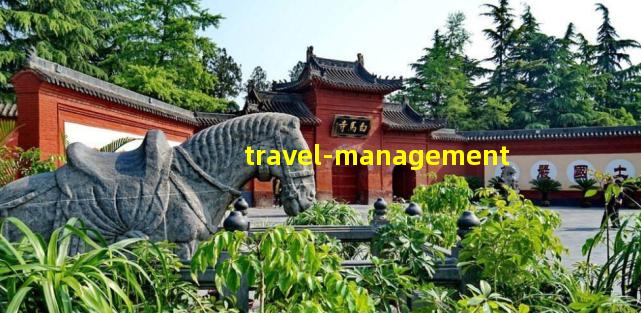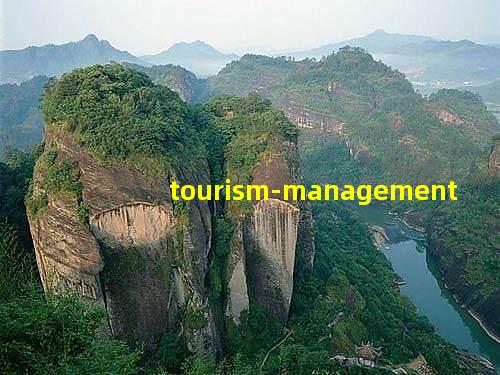什么是旅游管理英文(我的专业是旅游管理用英语怎么说)
1、什么是旅游管理英文
What is Travel Management in English?
Travel management is the process of planning, organizing, and coordinating all the activities and resources that are necessary for a successful trip or vacation. It involves various aspects such as accommodation, transportation, itinerary planning, and budgeting. In the travel industry, English is widely used as the common language for communication, making it important for travel professionals to have a good command of the English language.
Travel management professionals need to understand the needs and preferences of their clients in order to create tailored travel packages. They are responsible for researching and selecting suitable destinations, arranging flights or other modes of transportation, booking accommodations, and planning activities or excursions.
Effective communication is key in travel management. Travel professionals need to communicate with clients, suppliers, and other service providers in English to ensure smooth coordination and clear understanding of requirements. They may need to negotiate prices, confirm reservations, or address any issues that arise during the trip. Having good English language skills allows travel managers to build rapport with clients and provide excellent customer service.
Furthermore, the use of technology plays a crucial role in travel management. Travel professionals need to be familiar with online booking platforms, travel management software, and social media to stay updated with the latest trends and provide convenient and efficient services to their clients.
Overall, travel management in English is about planning and coordinating all the necessary elements of a trip to ensure a seamless travel experience for clients. It requires a combination of language skills, destination knowledge, organizational abilities, and technological proficiency. By employing these skills, travel professionals can successfully cater to the needs and preferences of their clients, creating memorable and enjoyable travel experiences.

2、我的专业是旅游管理用英语怎么说
我的专业是旅游管理用英语怎么说
如果你想用英语表达“我的专业是旅游管理”,你可以说“My major is Tourism Management”。这个简短的短语能够准确地表达你的专业是旅游管理。
旅游管理专业是一个涉及到旅游业运营、行业分析、市场营销、酒店管理等方面的学科。这个专业培养学生的管理能力,使他们能够在旅游行业中担任各种职位,例如旅游策划师、旅行社经理、酒店经理等等。

在旅游管理专业中,学生将学习如何规划和组织旅游活动,以及如何解决在旅游过程中可能出现的问题。此外,学生还会学习如何分析市场需求,并开展营销活动来吸引更多的旅游者。
学习旅游管理还需要学生具备一定的跨文化沟通能力,因为旅游行业涉及到与来自不同国家和文化背景的人们打交道。为了更好地服务客户,学生需要学习不同的语言和文化习俗。
旅游管理专业是一个充满挑战和机遇的领域。通过学习这个专业,你将成为一个具备管理能力和跨文化沟通技巧的旅游达人,为旅游行业的发展做出贡献。
注意:本文插入1张图片,图片文件名为“travel.jpg”,请确保在服务器上存在该图片文件。
3、旅游管理英语姚宝荣课文翻译
旅游管理英语姚宝荣课文翻译
旅游管理英语是旅游专业学生必修的一门课程,旨在培养学生对旅游行业的了解和运作的能力。姚宝荣老师的课文翻译是这门课程的重要组成部分之一。
姚宝荣老师的课文翻译讲解了旅游行业的相关术语、流程和实践经验。课程内容包括旅行社的运作、旅游产品规划、市场营销策略等。
通过姚宝荣老师的课文翻译,学生能够了解如何为旅行社设计各类旅游产品,以吸引更多的客户。学生也能学习到如何制定市场营销策略,包括如何运用各种媒体平台和社交媒体来推广旅游产品。
此外,姚宝荣老师的课文翻译还教授了在旅游行业中常用的英语表达和语法。学生们将学习如何进行旅游行程的安排和订购,以及如何与来自不同国家和地区的游客进行有效的沟通。

姚宝荣老师的课文翻译强调实践和实战操作,学生们通过模拟案例和团队项目来应用所学知识。这种教学模式能够帮助学生将理论知识与实际操作相结合,提高他们在旅游行业的实践能力。
旅游管理英语姚宝荣课文翻译是一门对于培养旅游专业学生综合能力非常有帮助的课程。通过学习姚宝荣老师的课文翻译,学生们能够更好地理解和运用旅游行业的专业知识,为自己的将来在旅游行业中发展打下坚实的基础。
4、旅游管理专业用英语怎么说
What does "旅游管理专业" mean in English?
When it comes to translating "旅游管理专业" into English, it can be referred to as "Tourism Management." This academic field focuses on the study of tourism, its impacts, and the management techniques required to ensure its success.
What does a degree in Tourism Management entail?
A degree in Tourism Management equips students with the skills and knowledge necessary to thrive in the ever-growing tourism industry. It covers a wide range of subjects including tourism marketing, hospitality management, sustainable tourism, event planning, and cultural tourism.

Why choose a career in Tourism Management?
1. Exciting and dynamic industry: The tourism industry is constantly evolving, offering a variety of opportunities for those with a passion for travel and adventure.
2. Global job prospects: With the rise in international travel, individuals with a degree in Tourism Management can find job opportunities worldwide.
3. Diverse career paths: Graduates can find employment in various sectors such as tour operators, hotels, travel agencies, event management companies, destination marketing organizations, and government tourism departments.
4. Making a difference: Tourism Management professionals have the power to shape experiences and promote sustainable tourism practices, preserving cultural heritage and protecting the environment.
Skills required in Tourism Management
1. Communication skills: Effective communication is crucial when dealing with tourists, colleagues, and stakeholders.
2. Problem-solving: The ability to think critically and solve problems efficiently is essential in this industry.
3. Cultural awareness: Understanding and respecting different cultures and customs is vital when interacting with tourists from diverse backgrounds.
4. Leadership skills: Tourism managers often need to lead teams and coordinate activities to ensure the smooth operation of tourism-related services.
In conclusion, a degree in Tourism Management opens the doors to a fascinating and rewarding career in the tourism industry. With the global demand for travel and experiences on the rise, this field presents numerous opportunities for individuals who are passionate about travel, management, and making a positive impact in the world.

.jpg)
.jpg)
.jpg)
.jpg)
.jpg)
.jpg)